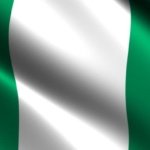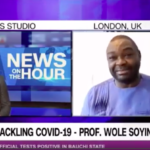HOW GOVT CAN LAWFULLY CONTROL INDEPENDENT STATE INSTITUTIONS

Many Nigerians do not understand the need for key Institutions to have Operational Independence as is Best Practice globally. There are certain institution of state such as the Civil Service, Central Banks, the Police etc that should enjoy operational independence in a developing constitutional democracy. Such independence strengthens the institutions, make them more responsible and enable them to be more citizen-focused. It embellished the fact that they are there to serve the people and nation rather than the political elites that come and go every few years.
Government come and Government go, but Institutions remain. Hence, then need to be Nigeria-focused, when the politicians are party focused. Overt control of such state institutions is a sign of failing state. Such institutions never develop because they lack consistency as they dance to the tune of each new political party in power.
This is not to say there are no indirect ways such Institutions can be controlled or influenced by any government; even in the Western democracies. In fact Goats have many tools and ways of influencing any Institution; but this need to be done with some tact and intelligence. Governments have many tools at its disposal to influence any state institution in ways that will not undermine public confidence in it. So what are the INDIRECT (but proper & lawful) ways governments can control state institutions that are supposed to enjoy operational independence? There are 7 common ways globally.
THROUGH PRIMARY LEGISLATION – A Government can always change the law that will specify a change in the way an institution operate. This is done through the Legislature who passes the new law. This is called primary legislation. This will force the institution to change its way of operating.
THROUGH UPDATED OPERATIONAL GUIDELINES – Many institutions can be influenced by change in Operational Guidelines or Secondary Legislation. This is when govt is allowed to make changes in operational practice or guidelines as empowered by the primary legislation.
THROUGH BUDGETARY ALLOCATIONS – A govt can influence an independent institution of state through cutting or increasing its budgets. A reduced budget for instance, will force any institution to change the way it works to live within its means. These changes may be what the govt wanted all along but could not instruct.
THROUGH APPOINTMENT & REMOVAL POWERS – Governments appoint the Heads and most Board members of all independent Institutions. By choosing people of certain inclinations, Governments can influence the direction of travel of any institution. For example, The US President can influence the leaning of the Supreme court by appointing judges with certain inclinations; although once appointed, the President can no longer control the court’s decisions.
THROUGH CONTINGENT & DEPENDENT GOVT POLICY INSTRUMENTS – Governments can influence an institution by making policies in the areas the govt control. For example, a govt can influence the Central Bank by making certain Fiscal or Commercial policy decisions (which are fully under govt control); to which the Central Bank has to respond through monetary policy balancing measures.
THROUGH JUDICIAL REVIEW – Using third parties, often a govt can seek judicial reviews of decisions by state Institutions.
THROUGH PRESSURE OF PUBLIC OPINION – A govt can whip up public opinion in a particular direction as a way of indirectly influencing a state institution to act in certain ways. This is common practice in developed democracies.
What is not allowed is a direct and overt influence by Governments of institutions that are supposed to be operationally independent of Governments. Such overt influence is not only a sign of weak institutional development but also a verified symptom of failing states. Intelligence and Skill is needed to lead in governments, staying within the limits of your powers but using all tools to influence the direction of travel. Checks and balances work in a democracy when every arm of Governments understand the limitations of its powers. Leading within that limit is what builds a nation and develop institutions.
While no single “one-size-fits-all” model of governance exists, there is strong agreement around the role and significance of effective, accountable, and independent institutions in promoting sustainable and equitable development in any nation.
Weak institutions tend to undermine countries’ prospects for growth. And the number one cause of weak and failing institutions is overt and constant direct political control. This strips independent institutions of capacity for effective decision making. So to answer some commentaries about my thread on the CBN, the foregoing are the ways influence can be exerted; not by public presidential instructions.





